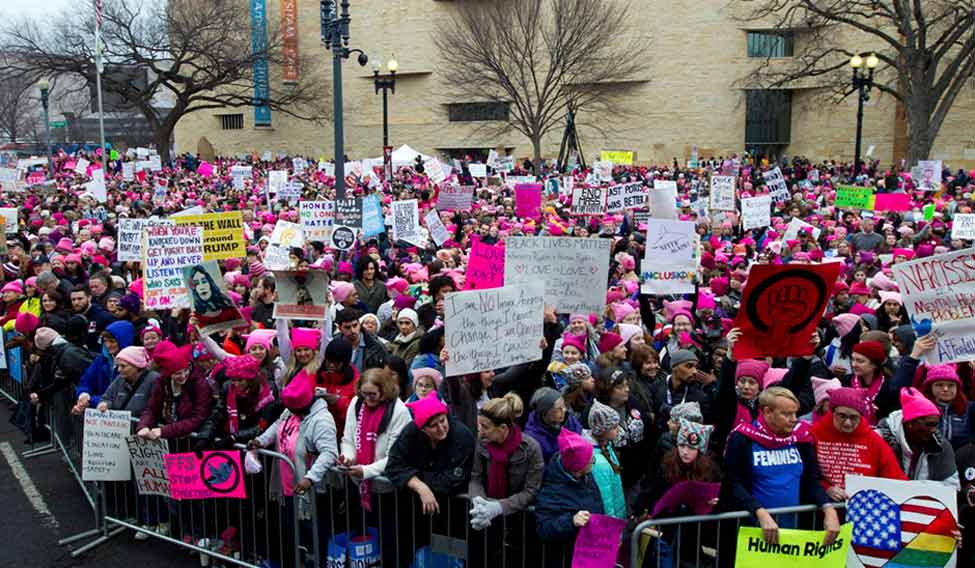When Donald Trump became the president of the US, he triggered a new wave of feminism. His casual dismissal of sexually aggressive behaviour as “locker-room banter” inflamed the anger of women all over the world. “When we elect a possible president we too often go home,” said feminist icon Gloria Steinem. “We’ve elected an impossible president, we’re never going home. We’re staying together. And we’re taking over.”
Two months after Trump took over, his counsellor Kellyanne Conway distanced herself from the term ‘feminism’. “It’s difficult for me to call myself a feminist in the classic sense, because it seems to be very anti-male and it certainly is very pro-abortion, and I’m neither anti-male nor pro-abortion,” she said. Conway contributed to a rise in the searches of the word ‘feminism’ on Merriam-Webster and, ultimately, to it becoming the online dictionary’s word of the year.
Searches of the word ‘feminism’ increased by over 70 per cent in 2017, said Peter Sokolowski, Merriam-Webster’s editor-at-large. “No one word can ever encapsulate all the news, events, or stories of a given year, particularly a year with so much news and so many stories,” Sokolowski said. “But when a single word is looked up with great volume, it also stands out as one associated with several different important stories. We can learn something about ourselves through the prism of vocabulary.”
But perhaps more than Trump and Conway, what took ‘feminism’ to the number one spot were the sexual harassment charges levelled against many important personalities from Hollywood producer Harvey Weinstein to Senator Al Franken and the resulting ‘Me Too’ campaign encouraging women who had been sexually harassed to speak up. Movies like Wonder Woman and The Handmaid’s Tale, with strong female characters and subtle feminist themes, also helped increase searches of the word online.
Merriam-Webster defines feminism as:
The theory of the political, economic and social equality of the sexes, and
Organised activity on behalf of women’s rights and interests
In today’s world of trending videos, viral tweets and selfies, the definition might seem slightly archaic. The issues that women have to grapple with—sexual harassment, domestic violence, unequal pay and misogyny—remain the same; however, modes of protest seem to have evolved. Feminism has enlargened its scope; from the realm of politics, it has shifted to that of identity. Women today are not pro- or anti-abortion. They want to be given the choice to decide. Icons of the movement have changed from solemn crusaders of equal rights like Betty Friedan and Gloria Steinem to young and peppy celebrities like Katy Perry, Beyonce and Rihanna. At the anti-Trump protests, along with rousing chants of We Shall Overcome, women belted out the lyrics of Beyonce’s Formation. The old might give way to the new, but women’s voices will not be snuffed out.







